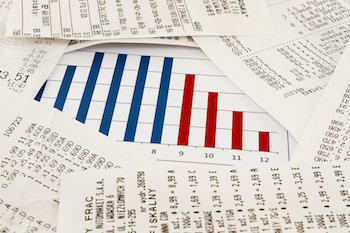
When most people think about bankruptcy, one thought tends to come to mind- “no more debt”. While this can certainly be true in many situations, it isn’t always the case. Many people don’t realize that there is more than one way to file bankruptcy. The most common types of bankruptcy for individuals and married couples are Chapter 7 and Chapter 13. While Chapter 7 bankruptcy is by far the most common, there are advantages and disadvantages to both.
In most cases, the type of bankruptcy a consumer chooses to file depends on two things: assets and income. Consumers who have a high number of nonexempt assets will likely need to choose to file Chapter 13 bankruptcy in order to protect their property, while those with higher incomes may have no choice but to file under Chapter 7. Since every situation is unique, it is wise for consumers to consult with an experienced bankruptcy attorney in order to determine the best method of filing. Failure to do so can result in the loss of personal property, the exclusion of qualifying debt or payments that are unnecessary. Contact us today!
Although located in Costa Mesa, we also service these Orange County cities: Aliso Viejo, Anaheim, Bell, Bellflower, Brea, Buena Park, Carson, Cerritos, Cypress, Dana Point, Diamond Bar, Downey, El Monte, Fountain Valley, Fullerton, Garden Grove, Hacienda Heights, Huntington Beach, Irvine, La Habra, La Mirada, La Palma, La Puente, Laguna Beach, Laguna Hills, Laguna Niguel, Laguna Woods, Lake Forest, Lakewood, Long Beach, Los Alamitos, Mission Viejo, Newport Beach, Norwalk, Orange Placentia, Paramount, Pico Rivera, Pomona, Rancho Santa Margarita, San Clemente, San Juan Capistrano, Santa Ana, Seal Beach, Stanton, Tustin, Villa Park, Walnut, West Covina, Westminster, Whittier & Yorba Linda California.